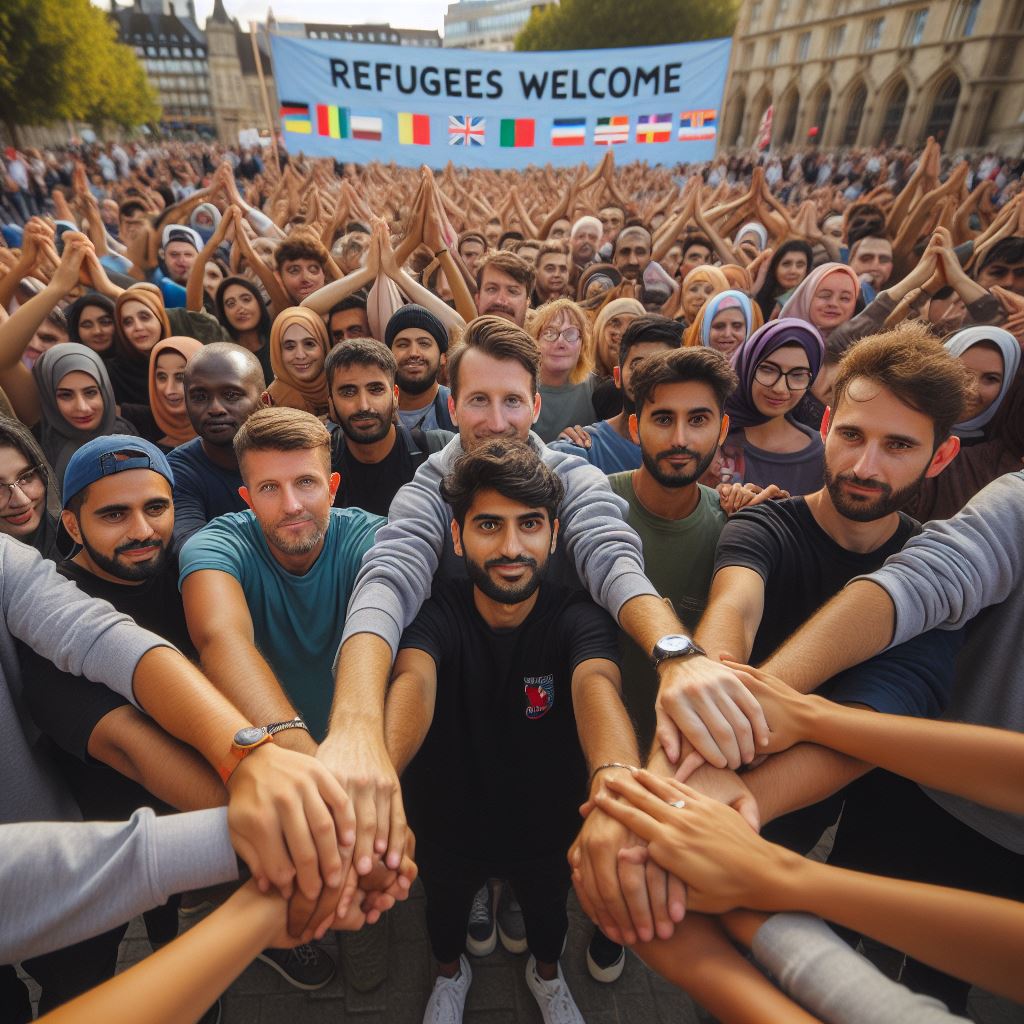When people in a community come together to help those in need, they are providing what is known as “community support”. Those in need otherwise called refugees may get monetary aid, as well as emotional and practical help in the form of food, shelter, clothing, and therapy.

For those in need, whether they be displaced persons, persons experiencing homelessness, people with disabilities, or people living in poverty, community assistance can be crucial. In times of crisis, such as those caused by natural disasters or outbreaks of a contagious disease, it can be of paramount importance.
Help from the community can come from many different people and places. Some examples are as follows:
Non-profit organizations
There are numerous non-governmental organizations (NGOs) that work to aid displaced people. These groups may provide services such as language courses, vocational instruction, legal aid, and psychological counseling.
Faith-based organizations
Religions and other places of worship also frequently help those who have been displaced. These groups may be able to provide resources such as grants, lodging, and language courses.
Local governments
They may be able to get help with housing, medical care, and schooling from their local governments.
Individuals
They can also benefit from the assistance of private citizens in a number of ways. They may lend an ear, provide money, give lessons in the local language or culture, or just be there emotionally.
Community groups
Churches, neighborhood clubs, and community centers are just a few examples of the kinds of community organizations that might help them. A sense of community and belonging can be fostered through the efforts of such organizations.
They need the help of the community since they confront many difficulties when they try to seek asylum in a new nation. They may have lost loved ones, homes, and valuables, and be struggling to learn a new language and culture.
The need for community support for refugees
The following examples highlight the importance of community support for refugees:
Emotional support
They may need emotional support because they may be struggling with a variety of mental health disorders as a result of their traumatic experiences and losses. Having friends and family who care about them is important for their mental health because it gives them a sense of belonging, empathy, and compassion.
Integration
They may find it difficult to assimilate into their new communities due to language challenges, cultural differences, and discrimination. Refugees can better adapt to their new homes with the help of the community, which can provide them with resources and information, language education, job training, and other services.
Networking
Building social and professional networks is vital for refugees to secure jobs, housing, and other basic needs when they arrive in a new country.
Advocacy
Having people in the community on their side while they deal with the legal system and fight for their rights is invaluable. Given the numerous legal and logistical obstacles that refugees often confront, this is of paramount importance.
Conclusion
Refugees need their new communities’ aid to overcome various barriers on their way to safety. This programme supports refugees’ rights, emotional well-being, social and professional networking, and town settlement. Most refugees arrive seeking for a home, therefore they need to meet new people and get involved in the host community. There are obviously exceptions, but refugees’ official and informal social support likely affects their health and happiness. More research into social-support systems is needed to understand the link between the two ideas. Future implementation of these results will improve refugees’ well-being, benefiting both refugees and host society. Providing refugees with competent social support services allows host countries to maximize human resources, making effective support techniques vital for refugees and host countries. Studying social support-specific measures to improve refugee integration and well-being is a future issue. Have we done enough to socially support refugees?
You may also like these related articles:
